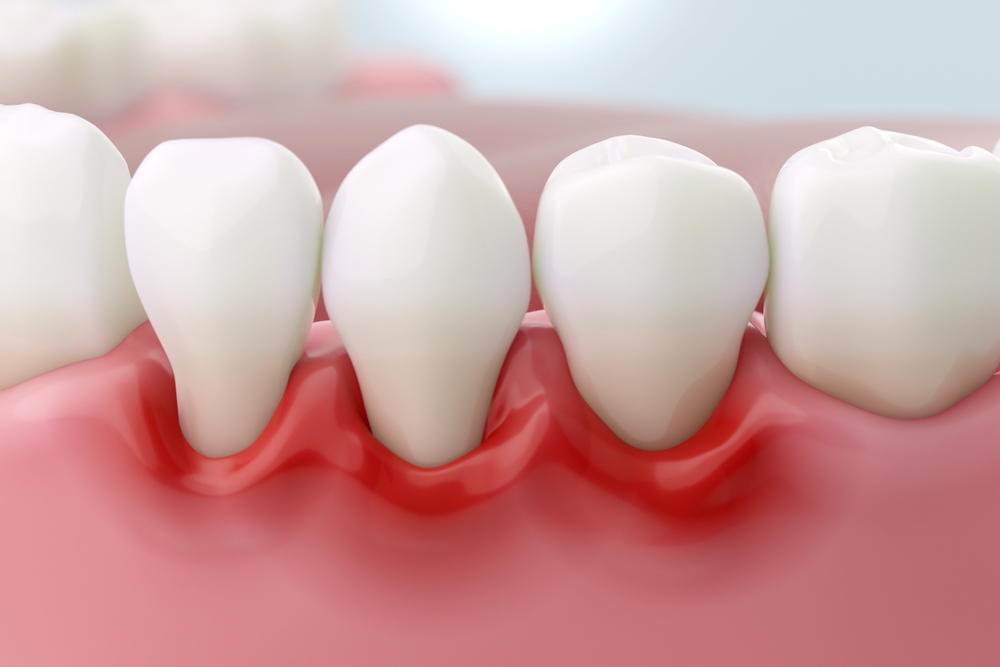Sleep Apnea and periodontal disease are two seemingly different health issues that may be more connected than most people think. This blog from Medical Arts Dentistry in Georgetown and Savannah explores the possible links between obstructive sleep apnea (OSA), a common sleep disorder, and periodontal disease, a serious gum infection that damages the soft tissue and can destroy the bone that supports your teeth. Understanding the connection between these conditions can help you take a proactive approach to your health.
What is Obstructive Sleep Apnea (OSA)?
Obstructive Sleep Apnea (OSA) is a disorder characterized by repeated episodes where the airway becomes partially or completely blocked during sleep. This blockage causes breathing to stop and start repeatedly throughout the night. Common symptoms of OSA include loud snoring, gasping for air during sleep, waking up with a dry mouth, and excessive daytime tiredness. OSA not only disrupts sleep quality but also triggers a cascade of health issues, including cardiovascular disease, hypertension, and metabolic syndrome.
Understanding Periodontal Disease
Periodontal disease, commonly referred to as gum disease, involves inflammation and infection of the gums and the supporting structures of the teeth. It starts with bacteria in plaque, the sticky, colorless film that constantly forms on your teeth. If plaque is not removed by regular brushing and flossing, it can harden into tartar, leading to gingivitis, an inflammation of the gums. If left untreated, gingivitis can progress to periodontitis, a more severe form of gum disease that can lead to tooth loss.
Exploring the Connection
Research suggests a bidirectional relationship between OSA and periodontal disease. Here’s how these conditions might be linked:
- Inflammation: Both OSA and periodontal disease are inflammatory conditions. OSA can increase systemic inflammation and oxidative stress, which in turn may exacerbate the inflammation found in periodontal disease.
- Immune Response: Sleep disruption and oxygen deprivation (hypoxia) from OSA can impair the body’s immune response. This impairment can reduce the ability to fight off periodontal pathogens, increasing the risk or severity of periodontal disease.
- Impact on Oral Health: People with OSA often breathe through their mouth, especially at night, which can lead to dry mouth (xerostomia). Saliva is crucial for controlling bacteria and maintaining oral health. A dry mouth creates an environment where periodontal disease-causing bacteria can thrive.
- Lifestyle Factors: Lifestyle factors that contribute to the development of OSA, such as obesity and smoking, are also risk factors for periodontal disease. Both conditions share common risk profiles that could explain their association.
What Does This Mean for You?
If you are dealing with either OSA or periodontal disease, it’s important to consider the implications for the other condition:
- Regular Screenings: If you have been diagnosed with OSA, it might be wise to visit your dentist for a comprehensive periodontal evaluation and vice versa. Early detection and treatment can prevent the progression of both conditions.
- Enhanced Oral Hygiene: For individuals with OSA, paying extra attention to oral hygiene can be beneficial. Ensure regular brushing and flossing and consider using a mouthwash to help keep your mouth moist and reduce bacteria.
- Medical and Dental Collaboration: Discuss your sleep apnea with your dentist and your periodontal health with your sleep specialist. Healthcare providers working together can offer a more effective treatment strategy for both conditions.
- Lifestyle Modifications: Addressing lifestyle factors such as obesity, smoking, and alcohol consumption can significantly impact the management of both OSA and periodontal disease.
Support from Medical Arts Dentistry with Dental Sleep Medicine
While more research is needed to fully understand the link between periodontal disease and obstructive sleep apnea, the evidence suggests a strong connection through shared pathways of inflammation and compromised immune function. By recognizing the signs and symptoms early and managing these conditions proactively, you can better protect your oral and overall health. Remember, taking care of your sleep is just as important as taking care of your teeth.
At Medical Arts Dentistry, we are dedicated to the long-term dental health of Garden City, Richmond Hill, and the surrounding Savannah communities. We offer family dentistry for children and seniors, athletic mouthguards, dental sleep medicine, as well as treatments for TMJ and orofacial pain. If you’re ready for a regular check-up and professional cleaning, or a consultation about oral appliance therapy, dental sleep medicine, our cosmetic dentistry options or dental restoration treatments, call 912-355-0605 for our Savannah location and 912-921-0401 for our Georgetown location.

